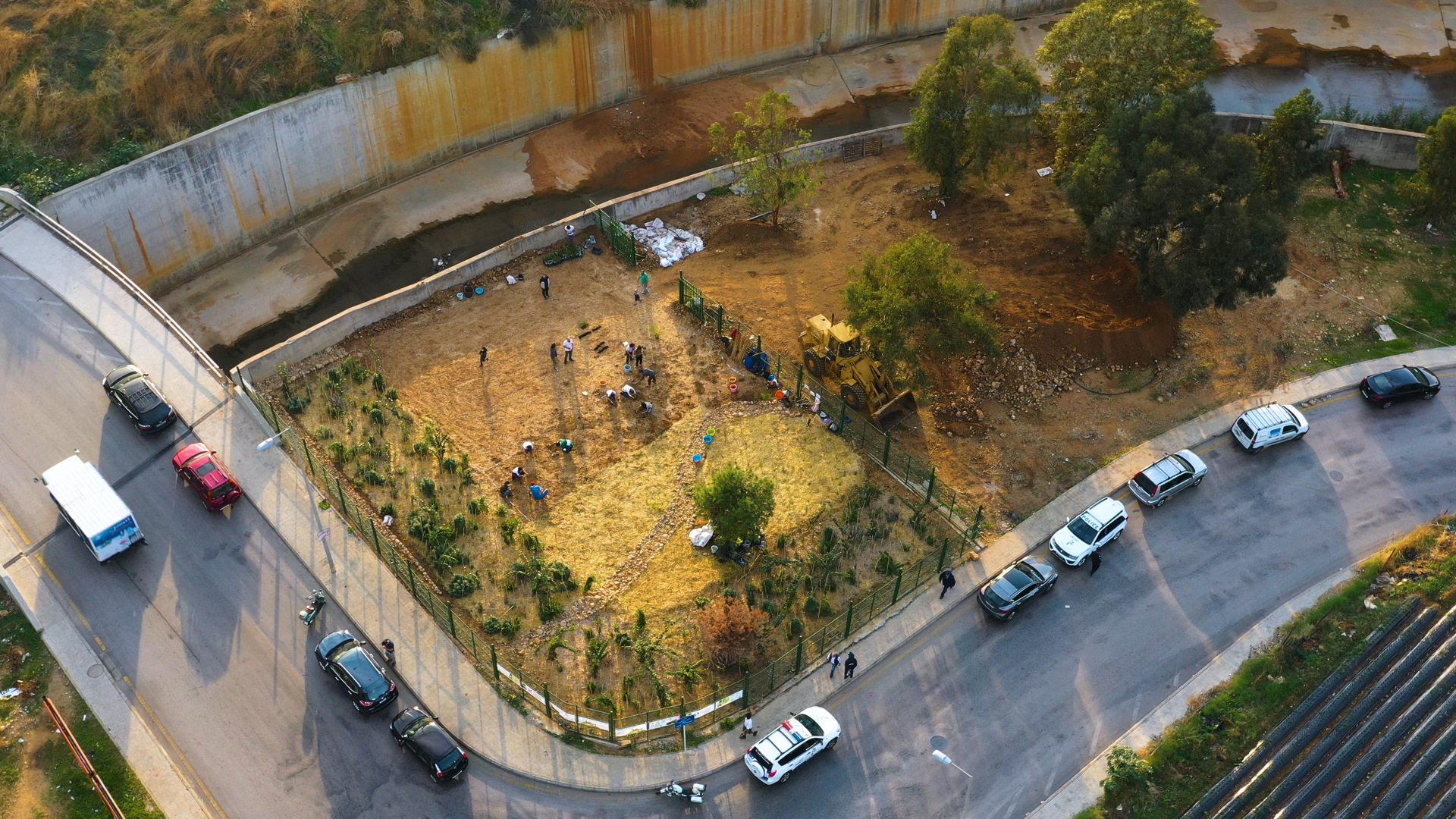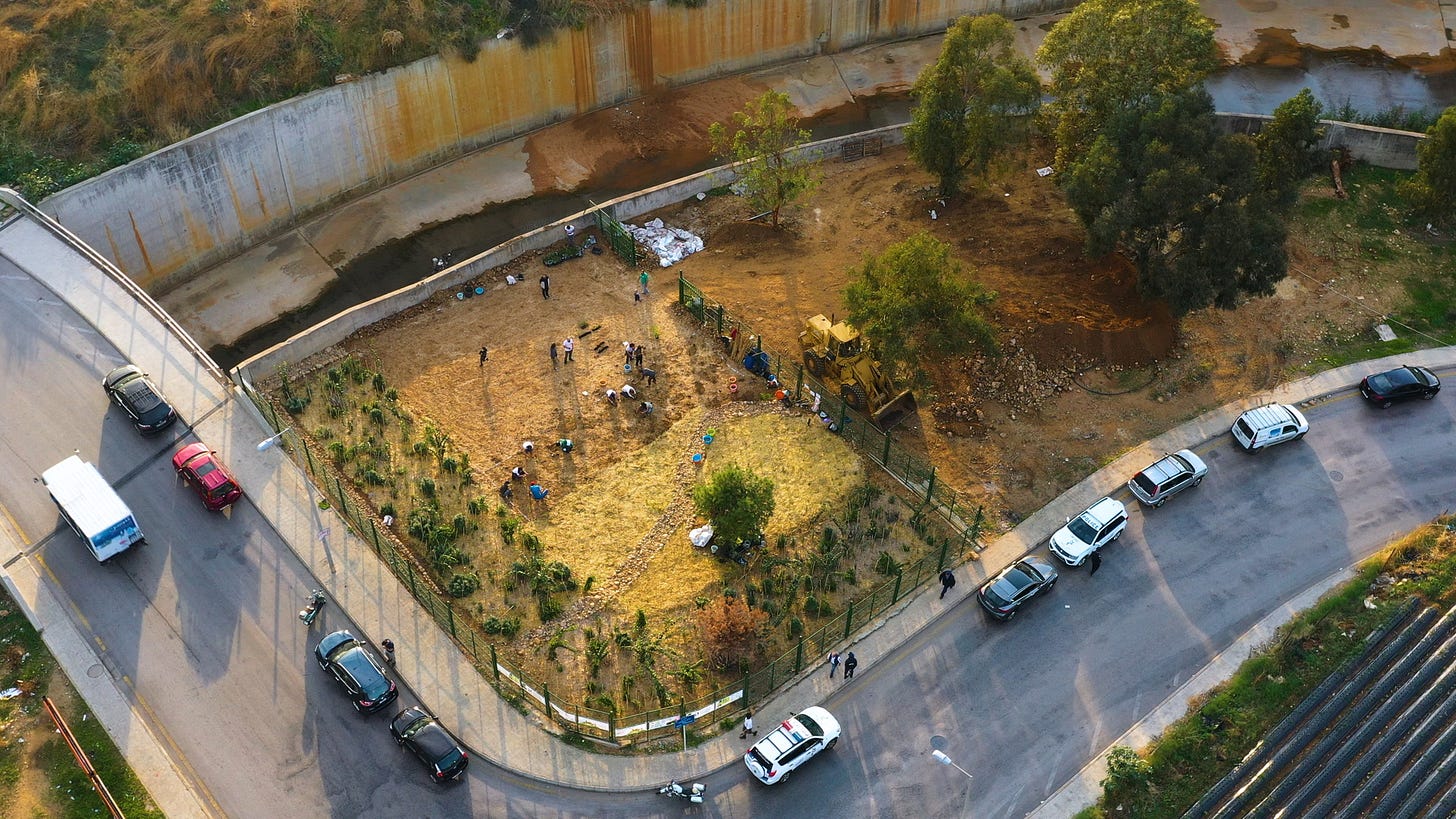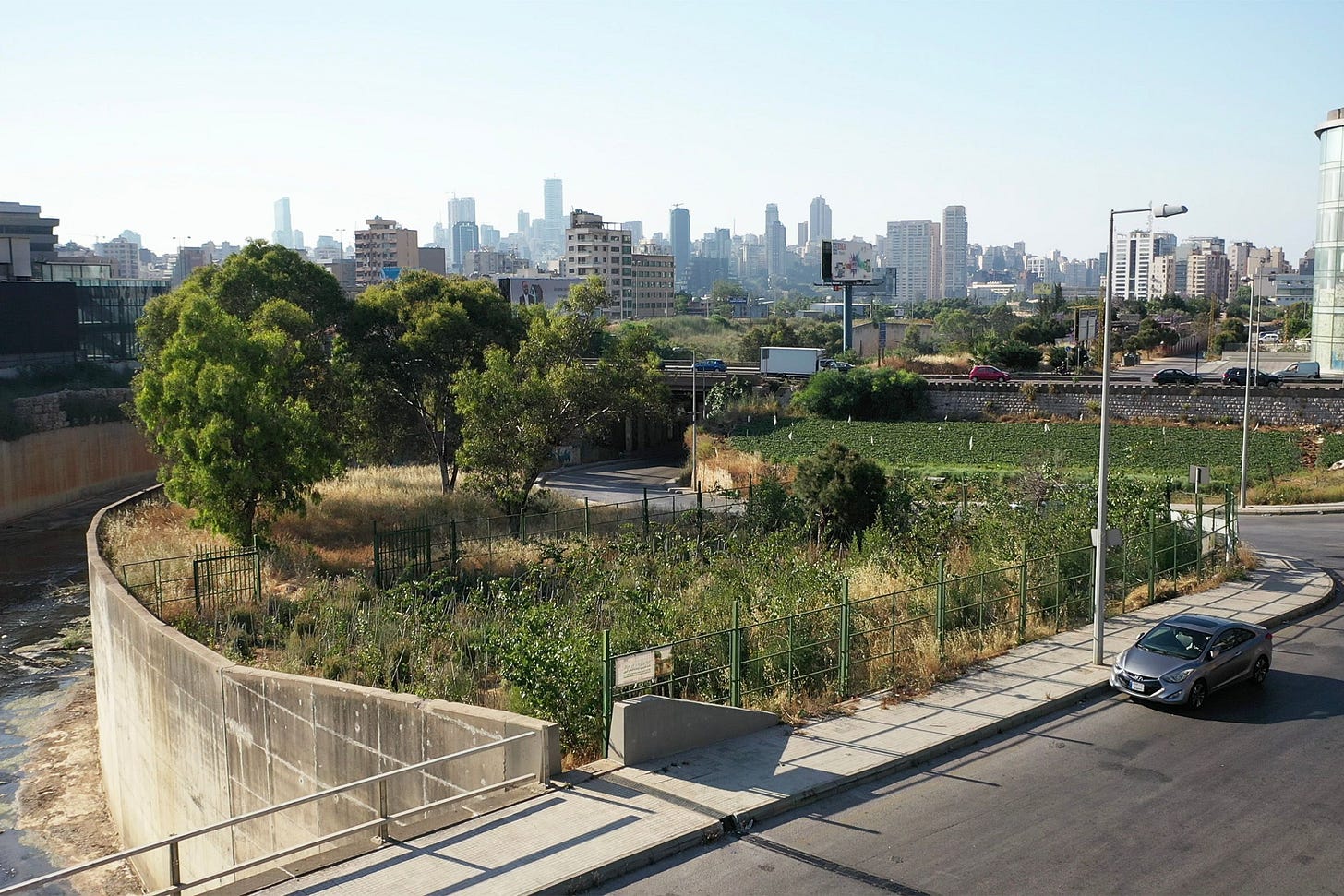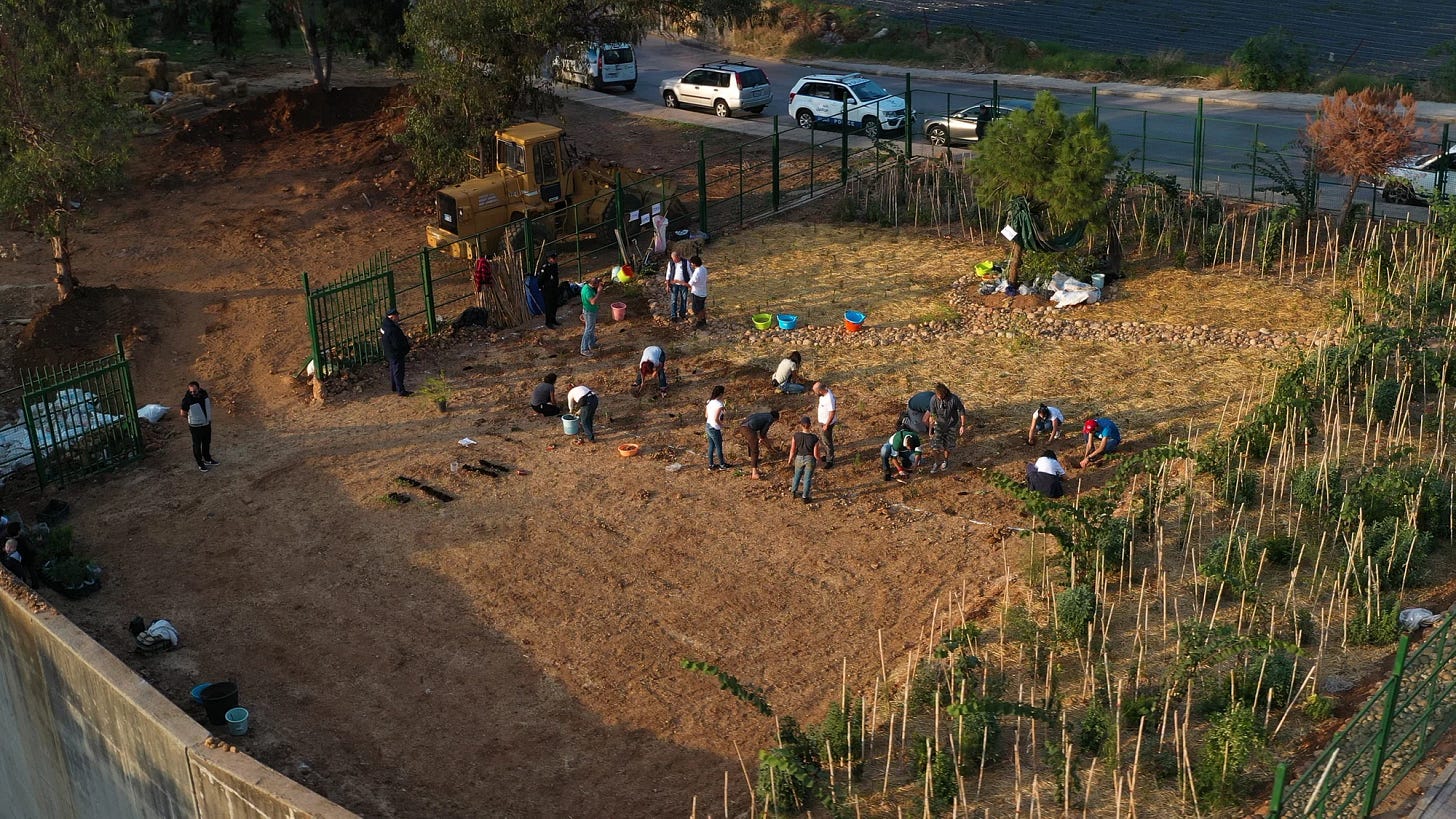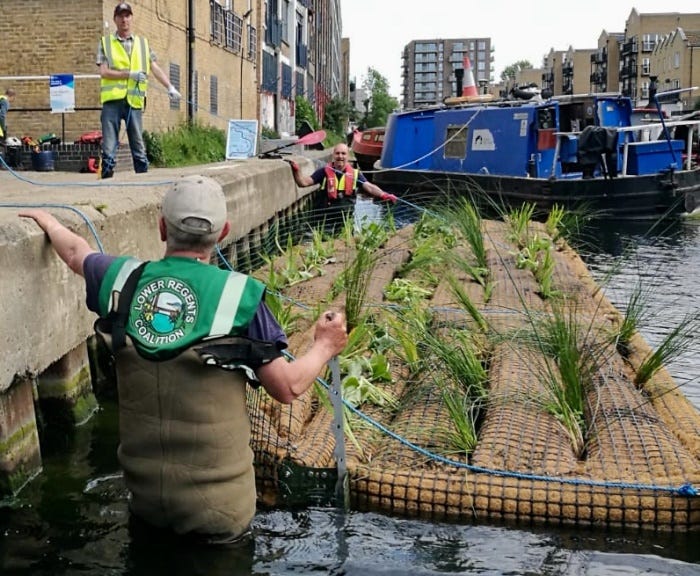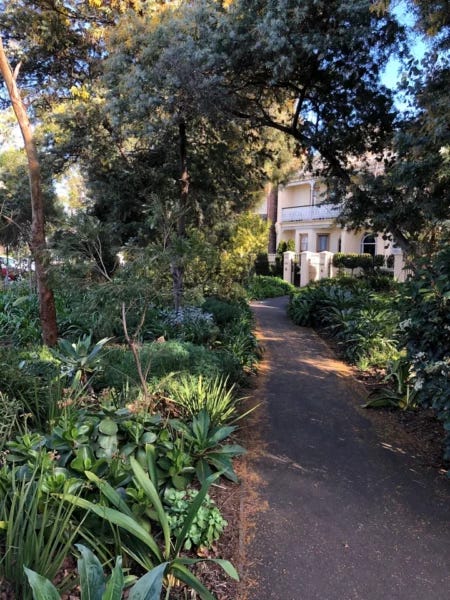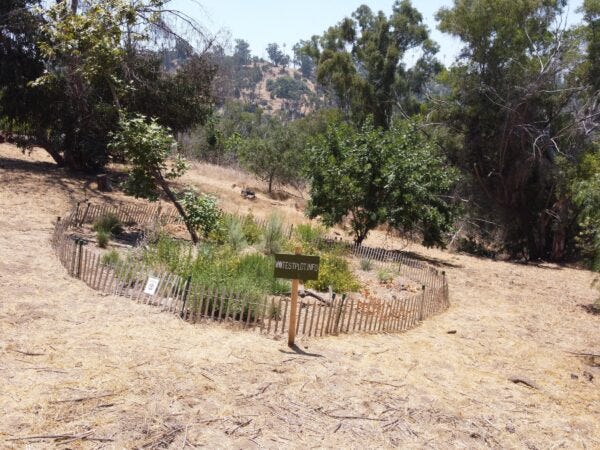Small Planting Projects with Big Impact: Gardening for the Future
Who isn't concerned with the state of our world? Climate crisis, loss of social connections and loss of natural connections have left us all feeling a bit helpless. We all want to create change but most of us are unsure where to start. At Virens Studio we believe that small changes add up to big ones, so here are some fantastic projects happening all over the world that show what can happen when people (individuals, community groups, local government etc) take action, one hort project at a time.
Beirut's RiverLESS Forest - Miyazaki tiny forests
The Beirut river has witnessed a great deal over its lifetime, its water has fed the city since Roman times and its riparian areas are one of the most important bird habitats in the region. However the last few centuries have not been kind. Much of the watershed was converted to farming, the intensity of which combined with invasive species led to degradation. Waves of migration meant that farmland then became settlements, causing further decline and flooding from erosion. In 1968 the river was encased in concrete, putting a decisive end to riparian plantings and natural interactions. The water became polluted as urban density increased and industrialization took hold. The city has only 0.8 square meters of greenspace per capita (the WHO recommends 9 square meters per capita).
A few years ago, one architectural designer and a small group of community members began to take action, approaching local government agencies with a desire for change. They were met with general disinterest but didn't let it stop them. Innovative ideas were a necessity to side step several large roadblocks. The concrete casing meant that the river itself and its banks were out of reach, so it was decided to target land laying adjacent to the water. And because the access and size of the land available was restricted, they chose to seek out small unused areas where the Miyazaki method could be employed, hoping that median successes could build into larger changes.
Eventually a small plot was secured in a single community and they began planning. What still remained of the natural watershed was surveyed extensively with 25 native species identified (17 of which were located for planting). Then two initial phases (in 2019/20) saw a legion of volunteers plant 2000 trees in 500 square meters with a third phase in November of 2021, a further 3200 saplings.
Success is already apparent as the community have been quick to reconnect to the river and its green areas. As the tiny forests are already providing a refuge for humans as well as birds and other wildlife (that now have access to a green space protected from hunting within the cities boundaries).
The group has been actively fund raising and promoting their projects through various outlets while building a community of like-minded people who want to change the future of Beirut, one tiny forest at a time. They provide everything for the forests first two years of life; planning, plant material and labour for planting and maintenance (the only exception being water, which they ask the municipality to provide). Additionally, they've started theOtherForest which seeks to provide a template that can help to replicate their efforts in other urban areas the world over.
Regent's Canal Floating Garden- Island ecosystems enhancing London.
Like many urban centres the hardscape of central London encompasses its rivers. This is the case along Regent's Canal where concrete and metal has replaced what were once riverbanks. Starting in 2015, community groups in partnership with local government began building a green corridor in the only space available, the water itself.
They chose specially constructed garden islands, made by Biomatrix for the project. Each island consists of tightly held coconut coir core, contained in mesh and situated in aluminum frames that are then connected together to fit the design. The modular units are available in many shapes and sizes and can include tree planters and even submerged islands (for aquatic species) plus solar panels, walkways and water aeration systems.
The Regent's Canal islands were assembled, planted and installed by volunteers with plant material chosen for habitat, aesthetic value and low maintenance. Marsh marigold, meadowsweet and purple loosestrife as well as a variety of sedges and iris were used.
The islands have had an immense effect on the surrounding community and ecosystem. Where once there was concrete and empty water, now there is nesting habitat and shelter for wildlife, fish and a diverse plant community. Plus added beauty and respite for city residents. And because of the very nature of the islands, they can be moved, changed and added too for many years to come.
The Heart Gardening Project - Melbourne Pollinator Corridor
Feeling concerned and disconnected after the 2020 bushfires, Emma decided to take action, one street garden at a time. The Heart Gardening Project is a community lead initiative building wildlife corridors on public land. The project is now 50+ gardens strong and working to build a pollinator corridor across the city of Melbourne.
All of it started with a single intersection, a pilot project that lead to an ultimate goal to build 200 individual pollinator-friendly gardens in spaces that are usually forgotten.
Emma and a team of volunteers, sponsors and partners employ a science-based approach to support and guide the project. They help like-minded people (residents, business owners etc) to turn empty hell strips, street ends and parking lots into gardens to enhance city life. Not only beautiful, these tiny green spaces add biodiversity and wildlife habitat to the area, as well as opportunities for social interaction and community connections for human recidents. The group continues to raise money and interest in the project while working to change antiquated city bylaws so that some day soon they'll reach their goal. So, if you're in the Melbourne area, get in touch to volunteer, support the cause or purchase one of Emma's, Melbourne Pollinator Corridor Handbooks.
Test Plots - Elysian Park reclamation project
What happens when a group of caring landscape architects and community members feel the hopelessness of a neglected local park?
Test Plots, was an attempt to revitalize a public landscape that had been lost to ineptitude and a lack of civic funding.
As the city wouldn't allow any permanent, large-scale restoration projects, some thoughtful community research lead to a blue sky idea. They would create 'temporary' plots which would both, sidestep bureaucracy and meet their own ideals.
This lead to an initial four plots - 30 foot wide circles (the throw of an average sprinkler) marked out with dune fencing. Each was then watered and weeded several times over, reducing the weed seed bank of the soil before planting. Volunteers then filled the plots with a variety of plant material chosen to mimic native biomes, each representing a unique climatic area. The idea was to maintain and monitor the plots with an eye towards biodiversity, seasonality and experimentation. Both low tech and budget conscious, one of the projects goals was always to expand, replicate and pass the idea on to others.
By 2020 a second park (Rio De Los Angeles State Park) with a further 12 rectangular Test Plots was added. The project continues to grow through the work of Terremoto landscape architects, community members and students (USC) all working together. Who knows, maybe one day there will be so many plots that they will all join together?
Swale NYC - Food forest barge
In 2016 one artist began a journey to bring attention to the need to protect NYC resources like clean water and fresh food.
Swale is a 5000sq foot reclaimed barge that houses a floating food forest open to unlimited foraging by the public.
It all began with a unique idea, since current laws prohibit foraging on New Yorks 30,000 acres of public land, why not take to the water where marine laws are different? Swale moves from community to community along the city waterways, inviting and educating people on the benefits of working together to end food deserts. The barge is less a solution and more a call to look for unusual models for a better future, a spark to light a fire under local government, community members and city dwellers alike.
It relies on the principle that common lands can be sustainably managed when people know each other, trust one another and work together for a common place. Swale offers its unique experience through tours, workshops, events and of course foraging as it docks in various parts of the city, inspiring the citizens of NYC to get involved in their own food revolution.
The Swale barge is on its way to becoming a permanent public park in 2022 with the hope of adding a second barge soon. The project also expanded to its first land-based initiative, Foodway, at a concrete plant turned park in the South Bronx in 2017.
We hope that these projects will provide you will a little creative gardening inspiration to meet your own goals and feel like we are all capable of making a difference on some level. Whether you're able to start your own project or get involved with these or any others that may speak to you, it all helps. There are so many of us that want to make the future better, so follow, support and do what you can, where and how ever you can. If all of us do something, even if it's small, it will add up to large-scale, positive change.
Here are a few individuals reaching out on social media, spreading hort love and making connections on a smaller scale, incase you need a little lift every once and a while.
Irreverent Gardener - One woman (and several chicken compatriots) sharing snapshots of her life and hilarious gardening adventures, including our fav feature, slugbastard of the week.
Hiranomanchi Street Garden - Gorgeous pictures and videos documenting the naturalistic plantings that fill 4 corners of a busy Osaka intersection.
Rakemob - Soothing temporary leafy art works celebrating pattern and the joys of autumn.
Sara-Jane & Alicia at Virens Studio
Virens is a studio based in Vancouver, Canada that specializes in Ecological Planting Design, Urban Greening Consultation and Horticultural Writing. Get in touch wit us today, and don't forget to follow us @virensstudio on Instagram.

